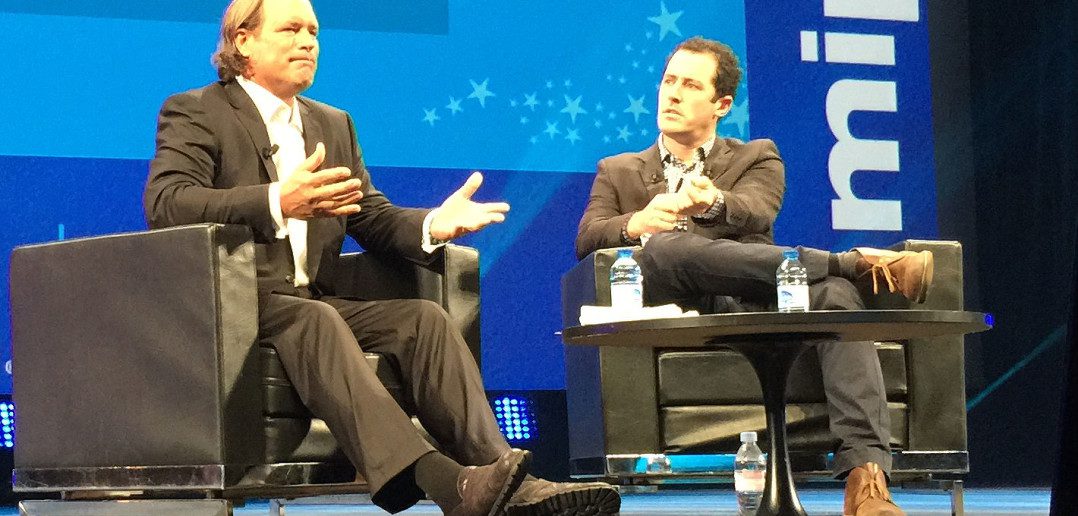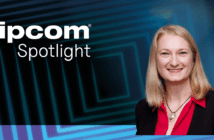The first Media Mastermind keynote session of this year’s MIPCOM was provided by Steve Mosko, president of Sony Pictures Television, talking about everything from hits like Breaking Bad to global distribution deals.
Mosko took to the Grand Audi stage for an interview with Matthew Garrahan, global media editor at the Financial Times. He talked about the three buckets of Sony’s business: production, channels and distribution, hailing newer shows like Outlander, Masters of Sex and Powers – the latter delivered through Sony’s PlayStation arm – alongside the big names like Breaking Bad.
« The digital explosion pretty much doubled the number of buyers we have around the world, just because of the number of platforms, » said Mosko, of the growing global distribution footprint for Sony’s shows.
He also talked about Sony being « a pretty lean operation » on the television side of things. « Our independence has really worked as a benefit for us… Today we have around 30 original shows on the air with 14 different networks… Internationally, being a lean, mean aggressive company really works to our benefit… We think we can manoeuvre and be nimble in a world that’s becoming very consolidated. »
Mosko talked piracy. « A lot of people in the television business have been in denial about piracy for a while, » he said. « If we don’t do anything about piracy, our business won’t be worth less: it will be worthless. » He said that Breaking Bad’s final episode was a « real eye-opener » for the company in that regard: it went through more than 100 people in between shooting being wrapped and the show airing on US TV – that chain providing plenty of weak points for the footage to leak out.
« I’m a big believer in you can’t wave your finger at the pirates and say ‘shame on you’, » he said. Instead, Sony has focused on stepping up its efforts to protect its shows in between shooting and airing. « The sooner you make it available in markets as close to the US airing as possible, the more you’ll deter the pirates. We’re moving, and it’s not easy, but we’re trying to get to a place whee we go day-and-date as much as possible around the world. »
Mosko talked new business models and emerging digital platforms – some of which come from media companies, rather than technology companies. « Added competition makes everybody better. We’ve seen our buyers increase significantly around the world: in the last five years, almost double internationally, » he said, while suggesting that Netflix’s growth in the US has sent ripples abroad. « A lot of very smart people in very big media companies have been vey observant in what’s going on in the United States. Whether it’s Sky in the UK or Shaw in Canada, they’ve seen it coming… Added competition makes everybody better. »
How does Sony Pictures sit within Sony at the moment? « There’s never been a time when the different parts of the company and the entertainment company have worked so closely together, » he said. « Everybody’s working very closely to really maximise all our assets. » He cited the company’s Crackle platform as one example, and Powers as another, as it will be delivered to users of the company’s PlayStation Network service.
« We’re doing a big-budget TV show on PlayStation. The budgets are comparable with what we’re doing with our basic cable dramas, » he said. « It’s exciting. We’ve been working really hard to work with Andy House [Sony Computer Entertainment boss] to make it work, make the model work and get the right show creatively that is complementary to the existing PlayStation audience. »
Mosko talked about the experience of watching television in the home: there are beautiful 4K-capable displays in the living room, and returned to a now-familiar theme at MIPCOM: the idea that we’re in a golden age of television. « It used to be if you were in motion pictures and you did television, it was like ‘okay, why are you doing television?’ But now it’s so interchangeable… and you see people making online, and doing everything. Delivering content regardless of the platform. The quality is so good, the writing is so good… There’s some really terrific television, it’s well written, well produced, great acting. »
Mosko continued: « Television now is global. It’s completely global, » he said. « Everything we do is done with eyes to how is this going to work around the world?.. I feel very proud to be part of the TV industry right now. It’s great to see everybody else have success. It’s great for the business. »
What about the plethora of new digital platforms that are out there? He suggested that his own children « don’t necessarily feel an obligation to watch when they’re told to watch » – so scheduling is a barrier to their viewing desires. « TV viewing is going up, and it’s going up because as I said earlier, the quality of programming is great. I will put an asterisk on that: there is some really tacky, disgusting programming that people like as well. We all like a glazed donut once in a while! So there’s a place for that kind of TV too. »
Mosko finished by talking about the upcoming spin-off from Breaking Bad, Better Call Saul. « There’s been a lot of twists and turns. I won’t spill the beans too much, but it’s going to make you want to go back and check the scenes in Breaking Bad, to check that you saw what you thought you saw! »




